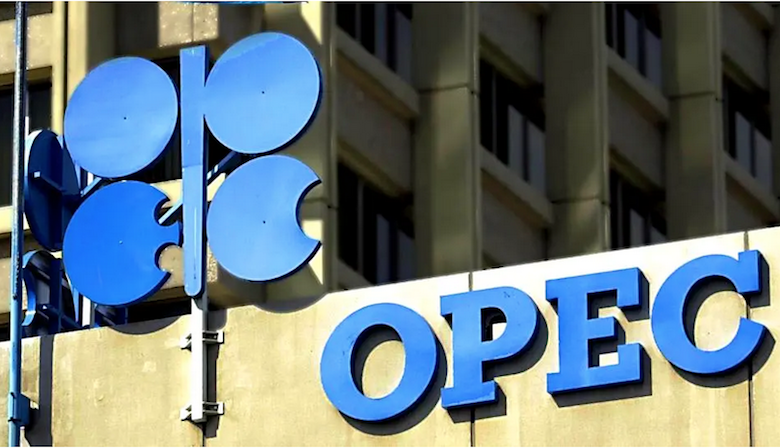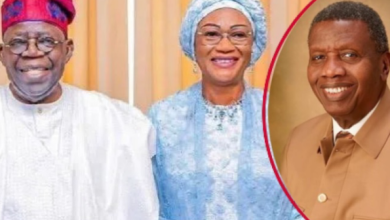Budget crisis looms as oil hovers around $60, far below $75 benchmark

Spurred by an earlier decision by the Organisation of Petroleum Exporting Countries (OPEC) and its allies to further speed up output hikes in June, oil prices continued to float around $60 per barrel on Tuesday,
Precisely, Brent crude futures, Nigeria’s oil benchmark, recovered slightly on Tuesday to $62.03 per barrel, a day after it dropped to an intraday low of $58.50 a barrel, its lowest since February 2021, while US West Texas Intermediate (WTI), was $58.94 per barrel, 24 hours after it sold for $55.30.
According to a national television,, analysts believe that the low poses a huge blow to Nigeria’s N55 trillion 2025 budget, which was built around a $75/barrel oil price benchmark, maintaining that the revenue gap is something to worry about.
With the prevailing situation, Nigeria has been recording about $15 per barrel deficit compared with the oil price peg for this year.
The country has also not been able to meet its crude production benchmark of 2.06 million barrels per day, having only been able to record 1.6 million bpd in March, even with the addition of condensates.
But despite the assurance by the federal government that it was responding to the looming economic challenges posed by the decline in oil prices, analysts on Tuesday advised the government to reprioritise its budget projections.
This, they said, would help Nigeria avoid escalating fiscal deficit and debt burden, which they stressed would have serious macroeconomic implications for the economy.
The Nigeria Labour Congress (NLC) also expressed fears that the drop in the international market price of crude oil might trigger more suffering for the Nigerian masses.
The continuing fall in global oil prices has clearly been exerting serious pressure on Nigeria’s 2025 federal budget.
Despite the authorities playing down its expected impact on the economy, the consequences if uncurbed, may be severe, with its attendant effect of weakening the naira, which already trades above N1,600 to the dollar, compared to the budget assumption of N1,400.
Recently, the government said it was responding by revisiting its fiscal plans, including the setting up of a subcommittee under the Economic Management Team, to model alternative budget scenarios.
Commenting on the development, an Economist and Chief Executive Officer of Centre for the Promotion of Private Enterprise (CPPE), Dr. Muda Yusuf, advised the federal government to reprioritise its budget projections to avoid escalating fiscal deficit and debt burden, which would have serious macroeconomic implications on the economy.
Yusuf said: “The drop in crude oil price will have significant implications for the implementation of the 2025 national budget.
“This means that there is an urgent need to review the budget’s revenue and expenditure projections in order to avoid a situation whereby a shortfall in revenue will cause serious macroeconomic challenges, such as increases in fiscal deficit and national debt.”
According to him, escalating fiscal deficit and debt burden have a way of creating serious macro-economic challenges.
“So there is an urgent need for a serious adjustment in the budget’s projections to determine what and what it should drop. As much as possible, we should avoid exacerbating the challenge of fiscal deficit.
“We should avoid the problem of fiscal deficit and debt financing as much as possible because we must ensure macroeconomic stability so that we do not overheat the economy.
In his contribution, the National President of Nigeria Chamber of Commerce, Industry, Mines and Agriculture (NACCIMA), Dele Oye, reiterated that Nigeria was faced with double jeopardy of falling oil prices and low oil production.
He pointed out that the current trend in crude oil prices might increase the projected fiscal deficit of N30 trillion by 50 per cent.
He added: “This will have a significant effect on all our fundamentals, especially the price of the Naira at the foreign exchange market. This is why the government needs to reduce its spending by addressing leakages in the current budget, so that it will not affect the market.
“Otherwise, the Naira will fall further, and there will be inflation, and the government will not be able to pay for services. In addition, the market will be unstable because the receipt will be far below the projected revenue in the budget.”
Oye, therefore, called on the government to cut its coat according to the size of its cloth.
“But the government is not behaving that way as it awarded a contract of $700 million to renovate the port. Where is it going to get that money?” he asked.
Analysts: Lower Oil Price Puts Economy in Dire Situation
However, analysts on Tuesday expressed concerns over the fate of the Nigerian economy amid falling oil prices below the $75 per barrel benchmark in the 2025 budget.
In separate interviews with THISDAY, they said the consequences of a bearish international crude oil market on the Nigerian economy were grave, adding that the $15 per barrel gap creates an additional deficit in budget performance.
They said the development has negative ramifications for Gross Domestic Product (GDP) growth, and poverty eradication among others, warning that the continuing slide in oil prices below the budget benchmark would worsen the government’s fiscal position, and dampen prospects for infrastructure development.
Nigeria’s Professor of Capital Market, Uche Uwaleke, said though the oil sector accounted for less than 10 per cent of the economy, nonetheless, it contributes over 80 per cent of the country’s FX inflows.
Hence, he said the persistent decline in the crude oil price will negatively impact external reserves with adverse consequences on FX market liquidity and exchange rates, adding that the implications could be quite grave for the economy.
Uwaleke said: “If the naira depreciates in the FX market on account of low FX supply, inflation rate is bound to rise further. With higher inflation comes higher interest rates from monetary policy tightening which leads to higher cost of credit for firms already in debt as well as lower access to credit for entrepreneurs.
“On the fiscal side, it has the downside potential of reducing economic activities and shrinking output if the experience of 2015 is anything to go by which largely caused the recession of 2016.
“Given that both the federal and state governments have prepared their 2025 budgets based on $75 per barrel, the downward trend in the oil price could compel a drastic reduction especially in capital budget provisions.”
According to the former Imo State Commissioner Finance, federation revenues may drop to a point where many state governments become unable to pay the minimum wage resulting in lower aggregate demand for goods and services.
He noted that the situation could further lead to lower sales, inventory accumulation and possible loss of jobs, with higher unemployment and poverty rates.
On the way forward, Uwaleke said the Central Bank of Nigeria(CBN) should continue to implement measures aimed at boosting confidence in the FX market in order to attract the much-needed foreign investments including Diaspora remittances.
He added: “The government can revisit the estimates in the 2025 budget with a view to prioritising spending in such a way that the deficit is not further widened on account of the decline in the oil price leading to more borrowing. This period also demands cost-cutting measures by all tiers of government.”
Also, speaking to the media, Group Managing Director/Chief Executive, Bristol Investments Limited, Dr. Chijioke Ekechukwu, said a low oil price regime creates an additional deficit in budget implementation.
He added: “Budget deficit leaves us with no other option but to borrow, but additional deficit creates more borrowing options, which will further worsen our economy, by increasing the debt to GDP ratio and debt service to revenue ratio.
“More revenues will be deployed to servicing our debts. Revenues that should have funded other critical sectors. Our foreign reserves will be affected adversely. It will deplete as the revenue declines. When foreign reserves drop, our exchange rate increases as a result of the demand for foreign currencies.”
The former Director General, Abuja Chamber of Commerce and Industry added: “When the exchange rate increases, the inflation rate will increase, the cost of living will increase, and hardship will pervade. Reduction in GDP will lead to reduction in per capita income, leading to more poverty. There is going to be an adverse ripple effect.”
On his part, Managing Director/Chief Executive, SD&D Capital Management Limited, Mr. Idakolo Gbolade, said the federal government should make budgetary adjustments to accommodate shortfalls and prioritise project execution and funds allocation to key strategic areas of growth.
He said the excess crude account had always been used to shore up shortfalls in situations where the oil benchmark falls below budgetary expectations.
Idakolo said: “Since the excess crude account is now not funded, it will not be able to cushion the effect of any shortfall. The main implication of crude oil price falling below budgetary projections is reduced revenue that would affect growth projections and affect infrastructural development.”



